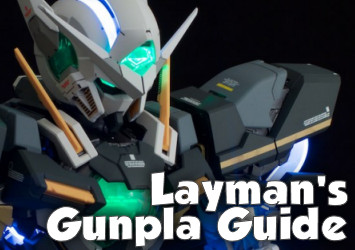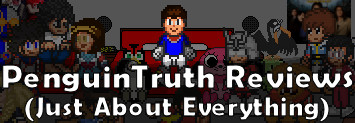Episode 30, "Ishbal Extermination"

*****SPOILERS*****
Synopsis: Riza Hawkeye relates to Edward, and Marcoh to Scar, the Amestrian military's role in the Ishbal conflict. After the war broke out, it was seven years before Fuhrer King Bradley ordered the State Alchemists into Ishbal to eliminate the population. In a flashback, Mustang meets with Hughes and Hawkeye after a long while, and sees that they all have the eyes of a murderer. Hughes, however, looks forward to a future involving his girlfriend, Gracia, back at home. Zolf J. Kimbley, one of the State Alchemists uses a Philosopher's Stone made up of Ishbalan civillians to kill others. The head Ishbalan cleric tries to exchange his life for the life of his people, but King Bradley refuses the deal, calling him foolish. The war eventually ends, and Roy has Riza become his assistant. Back in the present, Riza tells Edward that Roy's path will eventually lead to judgement on those who took part in the war, regardless of who was manipulating them. Envy goes to check on Marcoh, but finds a dead body and the word "vengeance" written in blood on the wall.

Comments:
This is a really difficult episode to review.
My favorite volume of the Fullmetal Alchemist manga is volume 15, an entire volume dedicated to a flashback to the Ishbal War. There are a few pages in the beginning with Ed coming to give Riza her gun back and a couple of panels of Scar with Marcoh, but the rest of it takes place in the past. The note from Arakawa at the beginning of the volume mentions that she interviewed WWII veterans on their experiences to get this volume just right. And her research paid off: it's the finest volume of manga I have ever read in my life.
It's a real heart wreching, disturbing volume, as well. The Ishbal War is more hell than most fictional military conflicts I've ever read about. There's all sorts of chaos and brutality, and only short reprieves, which are all puncuated by even grander acts of wickedness. But it also has a lot of heart in its tragedy, as ideals are destroyed, minds are lost, and dreams die. And it involves/affects nearly all the adult characters in the story thus far: Roy Mustang, Riza Hawkeye, Maes Hughes, Alex Louis Armstrong, Zolf Kimbley, Tim Marcoh, Doctor Knox, the Rockbells, Scar, Fuhrer King Bradley, and others. This is a volume wherein Ed and Al are only seen for a moment, comforting Winry while her parents are in Ishbal. This one is about the adults, not those kids who would later grow up in the consequences of those actions.
This is not a review of that volume of manga. This is a review of the single episode of this series that adapted that volume of manga, 174 pages of beautiful agony. Needless to say, with a single episode as its runtime, it did not have the same impact. In fact, it had little of the impact the volume had at all.
So much is missed: Most of the Scar bits (which were inserted into a previous episode), all the scenes with the Rockbells, the discovery of Aerugo weapons, the locking up of soldiers with Ishbalan blood, Armstrong trying to help civillians to escape (with Kimbley killing them before they could, then telling Armstrong, "That was a close call."), Basque Gran shooting an uncooperative and bloodthirsty commander, Marcoh talking to Knox, Kimbley's assignment to kill the Rockbells, and him arriving too late to do so, and Kimbley blowing up a bunch of commanders when they try to get him to return the Philosopher's Stone (and one is apparently Envy).
They even changed some of the bits that they did include. For instance, in the scene where Kimbley talks to Roy and Riza about a soldier's duty, the speech is far less developed in this episode, and instead of being in the presence of just those two and Hughes, it's to several soldiers who happen to be gathered around. In another scene, cut out, but important to the scene where Roy tells Hughes his new plan, Roy sits down and has a drink with members of his battalion he had never even seen until that day. Lust is supposed to have been present at the making of the Philosopher's Stone in Lab 5. They cut Bradley's inner monologue after Roy looked up at him, one of the best parts in the volume ("He's looking at me... no, beyond me.").
The episode becomes more about Roy, Riza, and Maes than anything else. But they totally missed the significance of Riza's tattoo, that it was the key to her father's research, and that Roy burned that part of her back slightly after the war so it could never be used again for alchemy research, because she couldn't bear it giving birth to another Flame Alchemist.
As an adaptation of that volume, this episode almost utterly fails. What it does deliver from those chapters seem to not even be as significant anymore. It even seems to tone down the atmosphere. It's pretty disappointing in this regard.
However, as an episode in of itself? Without the expectations of that volume, what would I have thought of it? It's pretty good on its own, actually. You learn a bit about Roy and Riza's past, you see Kimbley in action, get some visual confirmation about the research being done, and get to see some of the hell the war in Ishbal was, even if it was a little toned down. Most importantly, you still learn that Roy has every intention of paying for his actions in Ishbal later on, even if he was just a solider doing his duty, or manipulated by the homunculi. It's that sort of responsibility that makes him an admirable guy.
One thing I found weird about the scene with the Fuhrer talking to the Ishbalan priest was how he kept calling him "human". This, as far as I can tell, was not in the manga. What I mean is, he didn't address him as "human". You would assume that a homunculi who is trying to pass himself off as human wouldn't address somebody as "human", because they're all ostensibly humans. Didn't that raise any questions among the soldiers at the time? I guess it could have just been chalked up as an eccentricity, but even after seeing how brutal Bradley was, Hughes gladly trusted the man later on (and died because of it). Look, I like Hughes, but jeez, what a fuckwit.
I can't give this a very high score, but nor can I give it a low one. It wasn't bad by any means, but it could have been two very epic episodes, instead of one pretty good one.


Overall Score: 3.5 out of 5







